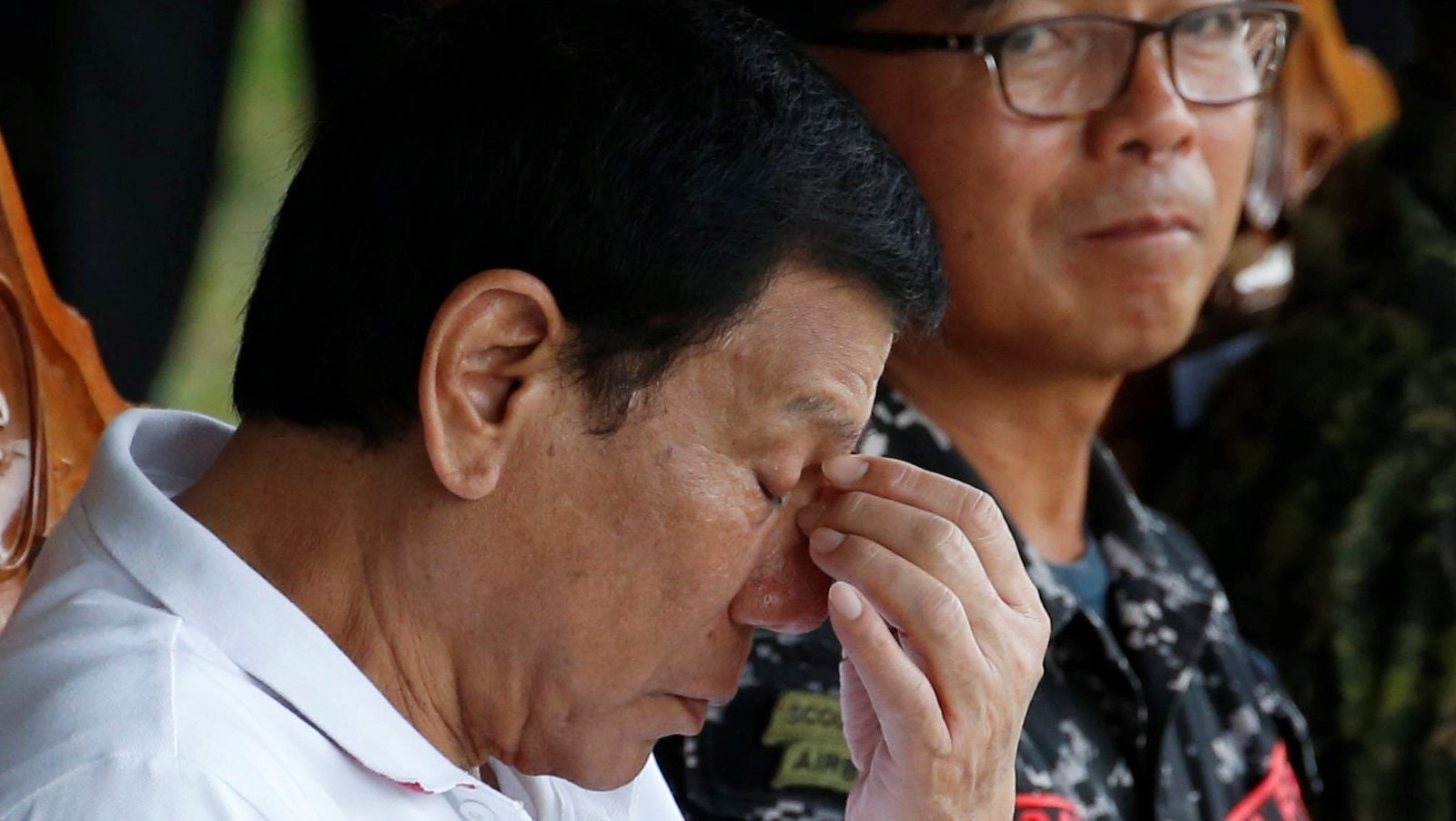Philippines president Rodrigo Duterte is threatening to kick the US off his nation’s military bases
In 2014 the Philippines, alarmed by China’s growing maritime aggression in the South China Sea, decided to let the US military once again make use of military bases in the island nation. It was a notable development because in the early 1990s, the nation had kicked out US forces entirely, partly as a way to assert its independence and also because of abuse of local women by American soldiers.


In 2014 the Philippines, alarmed by China’s growing maritime aggression in the South China Sea, decided to let the US military once again make use of military bases in the island nation. It was a notable development because in the early 1990s, the nation had kicked out US forces entirely, partly as a way to assert its independence and also because of abuse of local women by American soldiers.
But Manila worked in important limitations to the Enhanced Defense Cooperation Agreement (EDCA), partly to appease those fighting against a renewed US military presence. It didn’t allow for permanent US bases, for example, as there had been for decades, and US troops could be present only on a ”rotational basis.” (Some saw these restrictions as basically a way for Manila to save face as it asked the US for protection against a rising China.)
Yesterday Philippines president Rodrigo Duterte noted another important limitation to the EDCA: It wasn’t signed, apparently, by his predecessor, Benigno Aquino III. Instead it was signed, in 2014, by the nation’s then defense secretary Voltaire Gazmin, and wasn’t even implemented until January, after the Supreme Court upheld its constitutionality.
Duterte pointed out that fact as part of a threat he made yesterday to junk the agreement, saying about the US government, “Better think twice now because I would be asking you to leave the Philippines altogether.” China and Russia, he noted, had been supportive when he complained to them about the US. “Tomorrow I will be friends with Putin and Xi Jinping,” he added.
In March (before Duterte won the presidential election), the Philippines agreed to letting the US make use of five specific military bases under the EDCA. But it’s still early stages and so far deployments have relatively small. In April, US defense secretary Ash Carter said a few hundred airmen would stay behind to continue the joint training conducted during the annual Balikatan exercise.
Duterte’s verbal abuse of the US began in earnest last month when Duterte called Barack Obama the rough Tagalog equivalent of “son of a bitch” or “son of a whore.” That came after a reporter asked Duterte how he would react if Obama brought up the topic of human rights in relation to Duterte’s war against drug criminals, which has involved thousands of extrajudicial killings, including many by vigilante groups. (The EU, UN secretary-general Ban Ki-moon, and human rights groups have also criticized the campaign, and received Duterte’s insults, too.)
Duterte has recently indicated he wants to “open alliances” with Russia and China, and has ordered the defense ministry to look into buying weapons from suppliers in those nations (traditionally the US has been its main provider). Duterte plans to visit China with a business delegation later this month.
One purpose the EDCA threat and heated rhetoric might serve: They help to make Duterte appear strong in what could otherwise be seen as weakness at home for his cozying up to China.
Under the Philippines’ previous administration, Manila opened a case against China’s expansive maritime claims in an international tribunal. That case came to an end in July, with the tribunal invalidating most of China’s claims, including to Scarborough Shoal, which China seized from the Philippines in embarrassingly easy fashion in 2012.
Filipinos celebrated the tribunal’s ruling, but it amounted to little change. Beijing still insists its claims are valid, and that other nations in the region reject the ruling in order for deals and development aid to go forward.